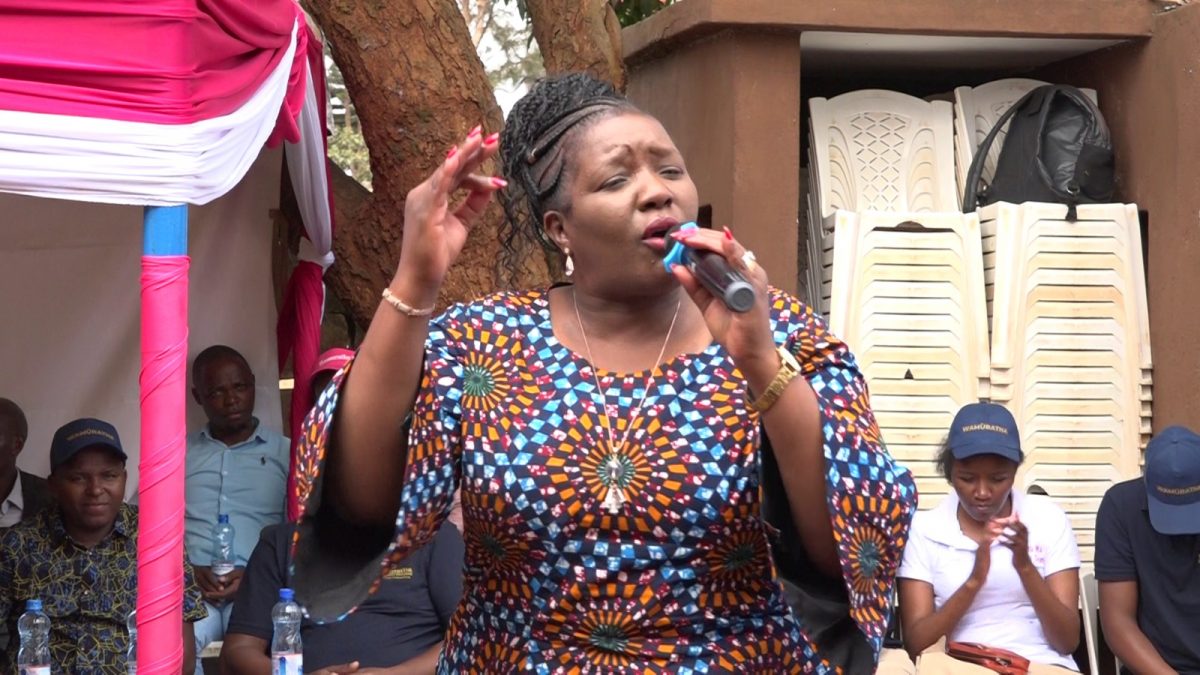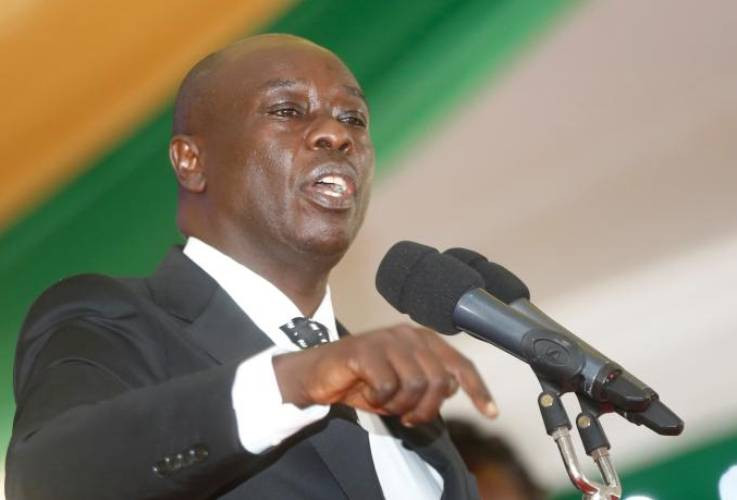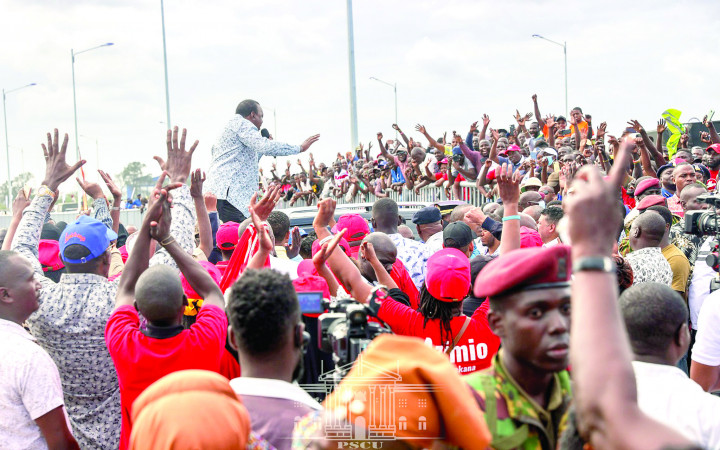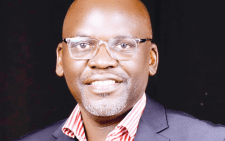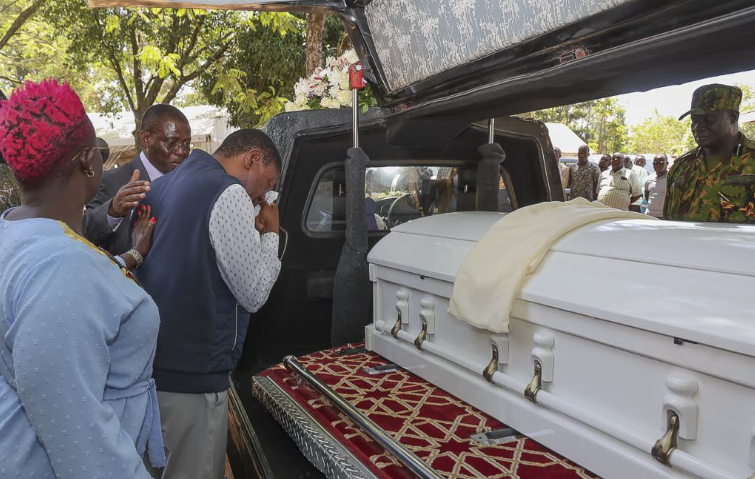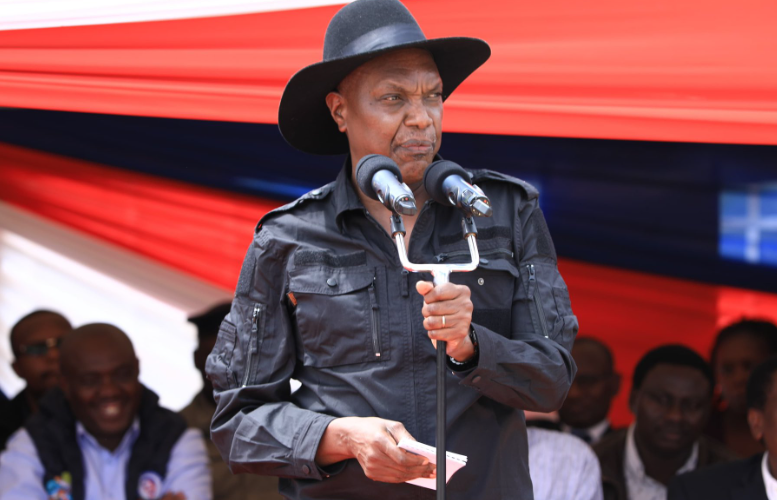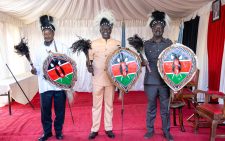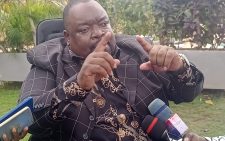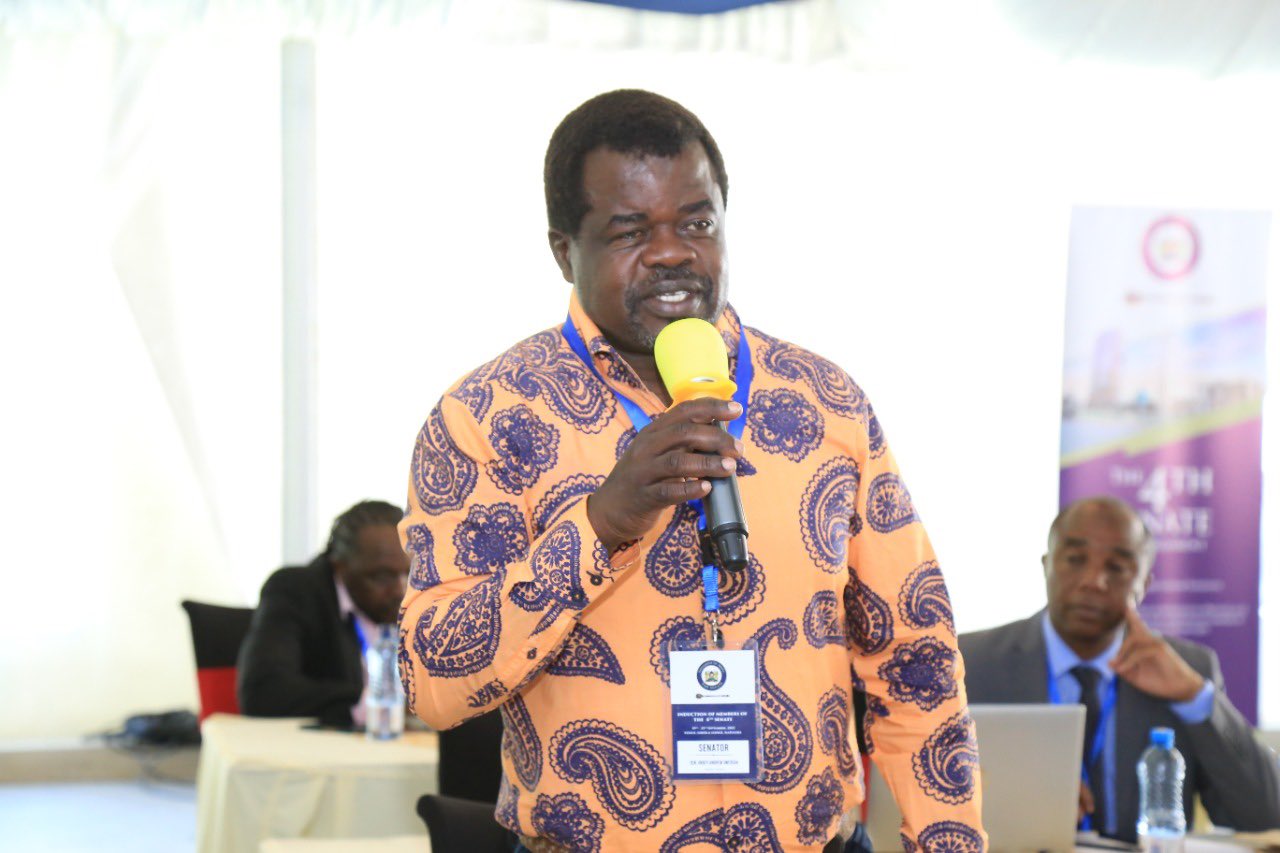Governors support BBI report with eye on big positions
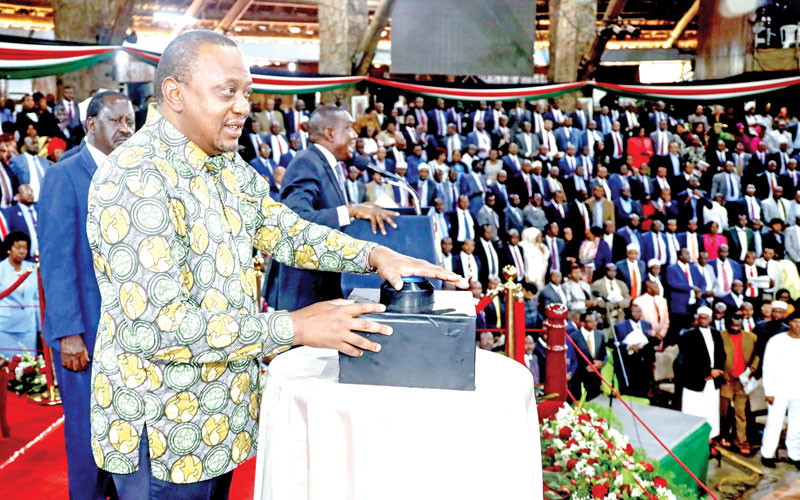
Emeka-Mayaka Gekara
The lure of new positions and additional resources proposed in the Building Bridges Initiative (BBI) report are some of the key reasons why some governors have thrown their weight behind the proposed national cohesion project.
Speaking to People Daily yesterday, the governors said the other attractions are gender representation and appointment of Cabinet members from both inside and outside Parliament.
The BBI report has recommended the expansion of the Executive to create the position of prime minister. It has also proposed the opening of the Cabinet to elected leaders.
The governors, most of who would be retiring after serving two terms stipulated in the Constitution, are persuaded that an expanded Executive and openings in the Cabinet would accommodate their future political ambitions.
The county chiefs, mostly from Opposition leader Raila Odinga’s power base, have hit the ground running with the BBI report.
Some have organised meetings to endorse the proposals, the first of which will be held in Kisii tomorrow followed by another in Kakamega on January 18.
“The expanded Executive proposed in the BBI will give the retiring governors with future political ambitions an opportunity to serve in the spirit of inclusivity.
It is about inclusivity, not positions,” said Machakos Governor Alfred Mutua, who has declared intention to vie for the presidency.
Kakamega Governor Wycliffe Oparanya has been categorical that they will endorse proposals for an expanded Executive with introduction of position of a powerful prime minister and two deputies.
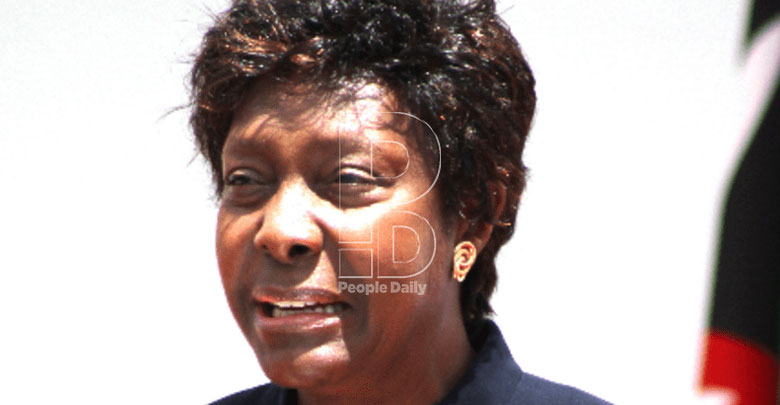
“We will be going through the first wrap of the BBI and we (governors from larger Western region) will take a position and also propose changes to the report,” said Oparanya.
However, a governor from the Rift Valley region, who sought to speak under the cover of anonymity, said they had decided to remain lukewarm towards the BBI report and wait for the “final signal” from Deputy President William Ruto, who has opposed the referendum route, preferred by Raila.
The initiative, which is spear-headed by President Uhuru Kenyatta and Raila, was birthed by the March 9, 2018 Handshake. The report was launched by the two principals at the Bomas of Kenya in November last year.
Inclusive democracy
Other governors who have voiced support for the report include James Ongwae (Kisii), Charity Ngilu (Kitui), Sospeter Ojaamong’ (Busia), Anyang’ Nyong’o (Kisumu), John Nyagarama (Nyamira) and Hassan Joho of Mombasa.
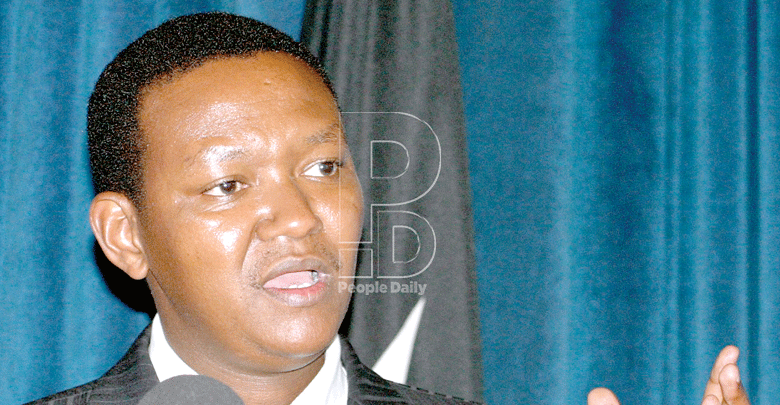
“The BBI speaks about the process of electing leaders. We need a fresh group of leaders that is development conscious.
Traditionally, governors emerge as presidents in the developed world. Having invested many years in public service they would like to serve in higher roles,” said Mutua in an interview with People Daily.
Nyong’o, who is among governors set to address the Kisii meeting, said the BBI was an important document for Kenya “at this moment in history.”
According to him, the report proposes an electoral system that would prevent regular violence after elections.
“We have to have an election in which when the results are announced, the victors celebrate and the losers accept the results.
We should have a situation where winners can include losers in their government. That is why I support a parliamentary system,” said the governor.
He added: “The winner-takes-it all system doesn’t work. Kenyans must decide what kind of democracy they want — an inclusive democracy or one that relishes competition for the sake of it.”
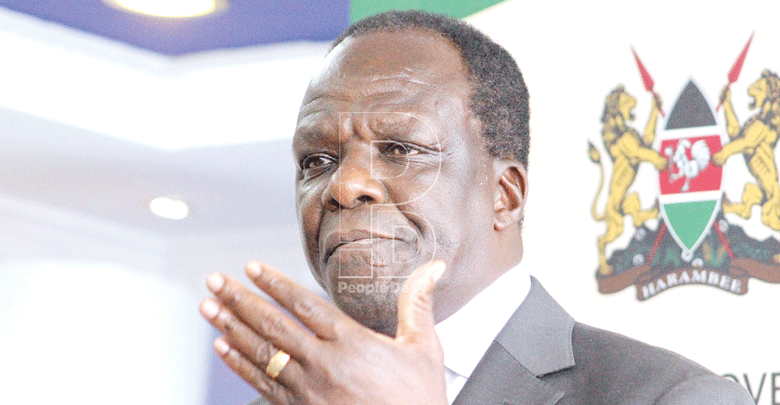
Ngilu said governors support the proposals because they will increase allocation of revenue to counties for development as well open space for more women positions of representation.
“If the expansion of the Executive to create more positions will create peace, so be it. Kenyans have been urging for equal distribution of opportunities.
We need more accommodation because leadership has been oscillating between two communities. Let us not hide our heads in the sand,” she said.
She added: “We as women we are demanding three positions at the top. Development is very political and women are not represented.”
The Kitui governor also backed the BBI proposal allowing appointment of elected leaders to the Cabinet, saying they understand the issues on the ground.
Ongwae, the co-host of the Kisii conference, said the provisions on devolution motivated their drive to spearhead the BBI discussions across the country.
He said the governors are determined to be part of the BBI process.
“If governors stand akimbo (on matters BBI), the process will stall,” he said. Most county chiefs, whose two terms in office have earned them political connections and popularity both locally and in nationally, have made it clear they do not want to retire when their terms of office expire and are playing cards that would enable them to be politically afloat after 2022.
Political relevance
Already, some governors have declared their intention to climb the political ladder, with five intensifying their activities hoping to create a brand in national politics while others appear to be keen on either becoming Deputy President or Cabinet Secretaries.
Lawyer Danstan Omari says most of the exiting county chiefs are “still young” and are expected to find ways of remaining politically relevant post-2022.
However, he argues that some may not even be interested in vying for the big posts, but are angling to be considered for coalitions by the strong candidates— and if they win, they will land top government jobs.
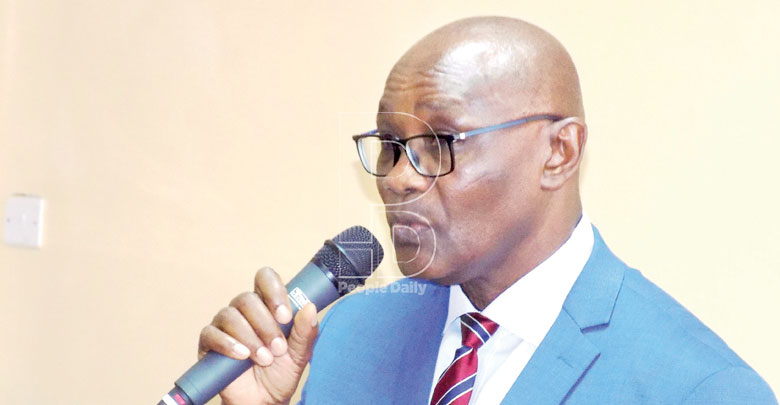
“If we have more than 10 governors even if they don’t have the clout, it might be a tall order for the main contenders to get the required threshold of winning and so, the governors will have to be approached to form alliances with promises for CS positions or other top jobs,” said Omari.
The latest to join the club of governors unwilling to retire from politics after two terms is Makueni’s Kivutha Kibwana.
“I wanted to go back home (retire) and look after goats but people said, ‘No, we want you to be our president.’ (And) so, I will be on the ballot,” said Kibwana during the Turkana Cultural Festival in August last year.
He joins Oparanya, Joho, Amason Kingi (Kilifi) and Mutua who have already made their exit plans clear.
“When seeking a leadership position, you do not wait for anybody’s sign. I am hunting for votes (for the presidency) with or without my party boss’s (Raila) endorsement,” said Oparanya.
Joho has been playing national politics and pushing for an expanded Executive.
Recent moves
Though he has not declared his next political move after 2022, Turkana Governor Josphat Nanok has hinted that he will want to be part of the next government.
Nanok, who recently broke ranks with ODM and was replaced as a vice chairman, has been warming up to Ruto.
Others governors who are serving their last terms include Ojaamong’ and his Migori counterpart, Okoth Obado, who from their recent moves also appear to have warmed up for the DP.
Elgeyo Marakwet’s Alex Tolgos has been warming up to Baringo Senator Gideon Moi who is also eyeing the presidency.
Others serving their second and final term are governors Patrick Khaemba (Trans-Nzoia ), Martin Wambora (Embu), Cornel Rasanga (Siaya), Paul Chepkwony (Kericho), Moses Lenolkulal (Samburu), Ongwae (Kisii), Nyagarama (Nyamira), Ali Roba (Mandera), Jackson Mandago (Uasin Gishu) and Samuel ole Tunai (Narok).
